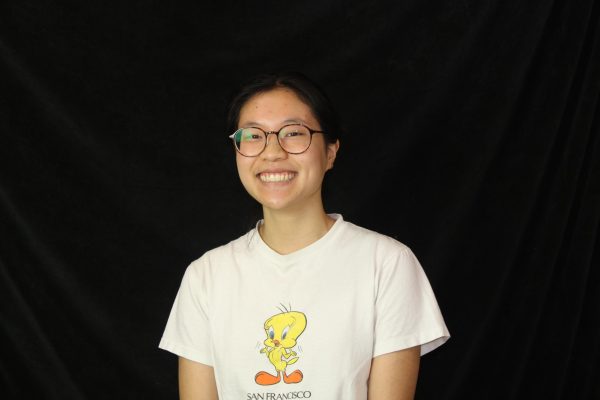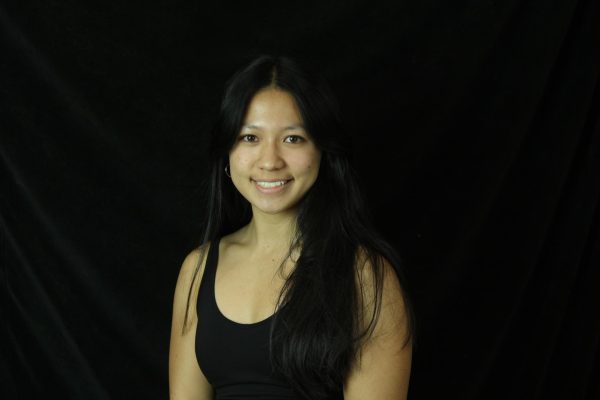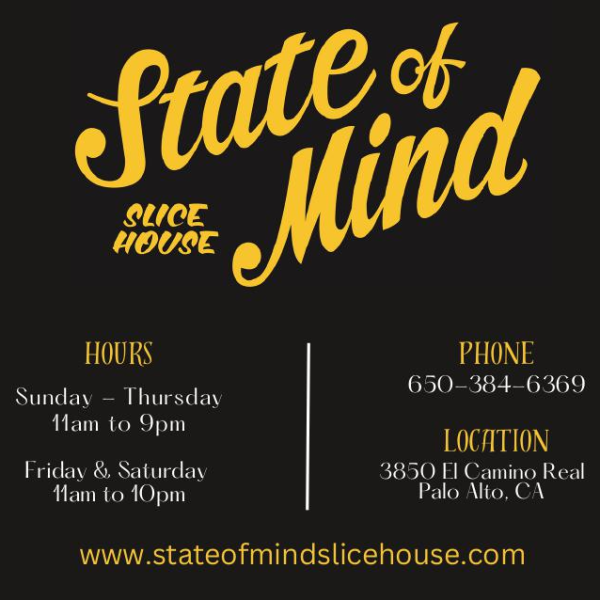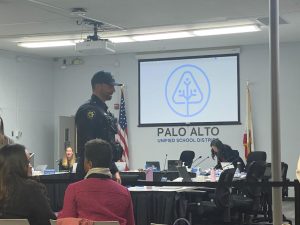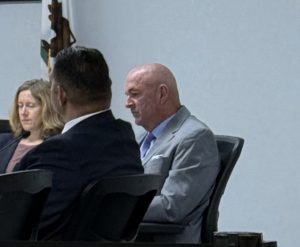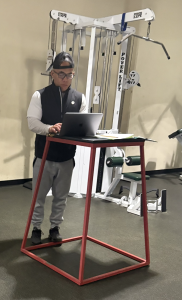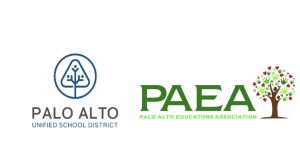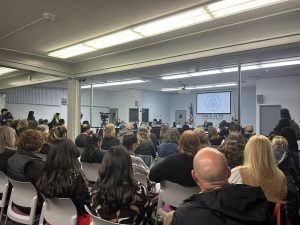ASB hosts first Town Hall
November 15, 2022
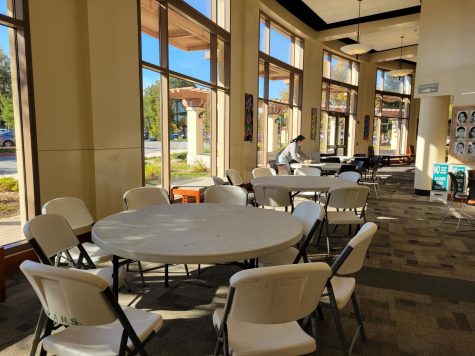
Organizers from the Associated Student Body are calling their first “Town Hall” event a success.
The event, which took place Thursday in the Performing Arts Center, was designed to spark conversation regarding a wide range of topics at Palo Alto High School.
The first Town Hall of the year presented an opportunity for students from all grades to conduct discussions on issues including mental health and student stress, as well as the Wellness Center and Advisory curriculum. Students were split into eight grade-specific groups of three to four students based on grades with an ASB representative at each table. The group leaders were given approved questions to help guide the discussions throughout.
According to Johannah Seah, Palo Alto Unified School District Student Board Representative, her main motivation for organizing this event was to create more awareness around important issues such as mental health.
“Especially since it’s my last year at Paly, I really wanted to make a big impact with issues I care about, and the biggest one for me has been mental health,” Seah said. “I know it’s a big conversation in Palo Alto too, and a lot of people are trying to tackle it, and I want to be part of that movement and discussion.”
Twelve students were randomly selected from each grade and given handmade invitations the period before to attend the event. Seah said this was done to encourage students, especially those not usually interested in attending events like a town hall, to share their thoughts.
“Especially with ASB events that take an input, we want to make sure that we’re getting a very diverse set of opinions,” Seah said. “We wanted to send out invitations to people who might not initially be involved with this, because we know that their opinions still matter.”
Seah said she was concerned with the lower student turn-out at the beginning, since not everyone invited to the event attended, making participant turnout around several dozen students. However, Seah was ultimately satisfied with the quality of the conversations.
Freshman Tarika Pillay said the panel has the potential to make lasting impacts on school culture, if ASB uses student feedback.
“If they [ASB] put in the effort and they make sure that our input gets somewhere then it will definitely be effective, but if they sit with it [student’s feedback], it’s not good,” Pillay said.
Freshman Nusaybuh Mosin said her discussion group mainly touched on stress culture stemming from academic competition.
“We talked a lot about test culture, and how different math lanes can stress people out and create a division,” Mosin said.
According to sophomore class president Julian Hong, the concerns brought up by students will be heard by administrators, and ASB will try to implement solutions from there.
“Some people were concerned about Wellness Center safety, therapists’ privacy, and some [other] things about Paly culture that could be addressed,” Hong said. “It’s up to administrators and ASB to see how we’ll move forward.”
The next steps will be to organize and compile the common issues that were voiced and arrange times to work with staff and the board to address those concerns, according to Seah.
“My process will be synthesizing all of those [notes] together, taking the key components so we can really focus our energy individually, and then distributing it into the respective stations,” Seah said. “Site level concerns with culture can be brought to both the site level principal, admin, teachers, students and the board.”
Seah said students can look forward to another Town Hall next semester with more of a focus on diverse curriculum in schools and the potential for regional implementation.
“I’m thinking of, after putting in my action plans for getting these changes, doing a check in [with students] … or having some sort of other forum,” Seah said. “But I’m definitely planning another town hall event in second semester, and that will be something that will take a little bit more work over the years, which would be about diverse curriculum in schools. That’s a little bit more centered at the board and the state level.”


